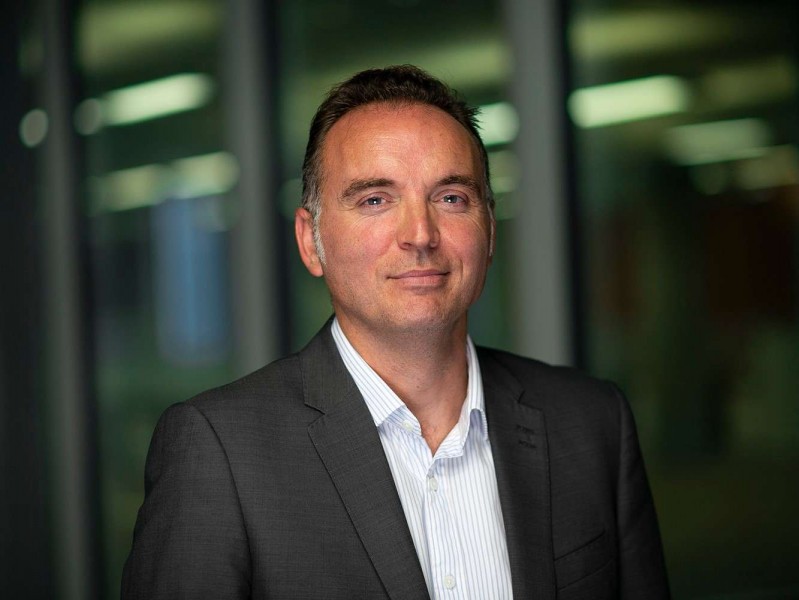John Butler
Global Lead Energy Transition - Global Maritime

John grew up with an interest in engineering and a sense of exploration. Graduating from RGU in 2001, John gained a wealth of experience from developing subsea construction and decommissioning projects, to marine civil engineering. In 2020, he set up his own consultancy undertaking projects in green hydrogen enablement, offshore floating wind and aquaculture. Find out more about John’s success.
Could you tell us a little about what inspired you to pursue a degree in Mechanical Engineering from RGU?
I was inspired by my father, a commercial diver, to pursue a career in engineering and undertook an HND in Marine Engineering in Southampton, which was the start of my higher education journey. It was always my great ambition to work at sea and in the marine industry. I spent nearly three years working as a Marine Engineer and although I thoroughly enjoyed my time at sea in the Merchant Navy, I wanted to challenge myself by pursuing a degree in engineering. At this time, I imagined that my career would still see me involved with the marine industry but not as a marine engineer. My father worked with a French diving company called COMEX with a base in Aberdeen. After numerous mergers and acquisitions over the past 30 years COMEX is now better known as Subsea7. I had an interest in the offshore oil and gas sector and saw Aberdeen and RGU as the best place to study for my degree and carve out a career in the North East of Scotland.
How well do you feel that your course and RGU prepared you for embarking on a career in the oil and gas industry?
Firstly, being based in Aberdeen the oil and gas industry was all around me, this gave me the confidence to understand the industry more intimately. Secondly, RGU had several connections with the oil and gas sector which allowed me to gain work experience and create good industry contacts while undertaking my final year project. It is this early network that built my experience and gave me an advantage in a market that is brimming with engineering talent.
How did your experience in the oil and gas industry prepare you for working in a marine civil engineering role?
When undertaking a marine civil engineering role, there was a far greater focus on people management and contract administration. This, for me, presented an interesting challenge. I am not a civil engineer, but I do understand the marine environment and people’s expectations. This part of my career helped me to develop the softer side of working with people and ensuring that, as a business, we were able to meet and exceed expectations.
What experiences or knowledge gained during your career prompted you to move away from oil and gas into energy transition and renewables more recently?
A great question. I am very proud of the work that I have done in the oil and gas industry, developing projects in challenging environments and working with great people and companies along the way. In April 2019, I attended an Oil and Gas UK Conference called “An industry in transition”. For me this was a watershed moment. For years I had attended OGUK conferences and business breakfasts and the metrics discussed was production profiles, wrench time, drilling activity and new developments. This was the first time that I attended an OGUK event where the topics were climate crisis, ethical investors, sustainability, and net zero goals. It was at this time that I put a far greater focus on energy transition and how I can effect change.
Now it is easy to visualise what a new energy ecosystem can look like, based on onshore and offshore renewables, green and blue hydrogen and geothermal. This for me this is far more inspiring and engaging, it represents an opportunity for the next generation of engineers and scientists coming into this diverse and vibrant energy industry.
What has been your biggest achievement or proudest moment in your career so far?
I have a lot to be grateful for and proud of, from a professional perspective I am delighted with the work I do with the Institute of Marine Engineers Science and Technology (IMarEST). My father always encouraged me to become a Chartered Engineer, so for me it was a proud moment to achieve my Chartership and tell my father. Since then I have become a Fellow of the IMarEST and an elected council member. To be voted into a position by your peers is both exhilarating and humbling in equal measure.
Do you have any advice for young engineers considering a career in oil and gas or energy transition?
My first piece of advice is to go for it. We are at a very important time right now, the actions we take and decisions we make over the coming decades could define the fate for generations. The world needs energy, the world also needs to decarbonise, this is setting some of the biggest challenges for our scientists and engineers. Now perhaps more than ever, we need the next generation of graduates to inspire, develop and lead on the new emerging energy ecosystem. Universities like RGU are going to be at the forefront of this educational transition. Personally, I am excited to see what the future will bring and the ideas that the next generation will champion.
